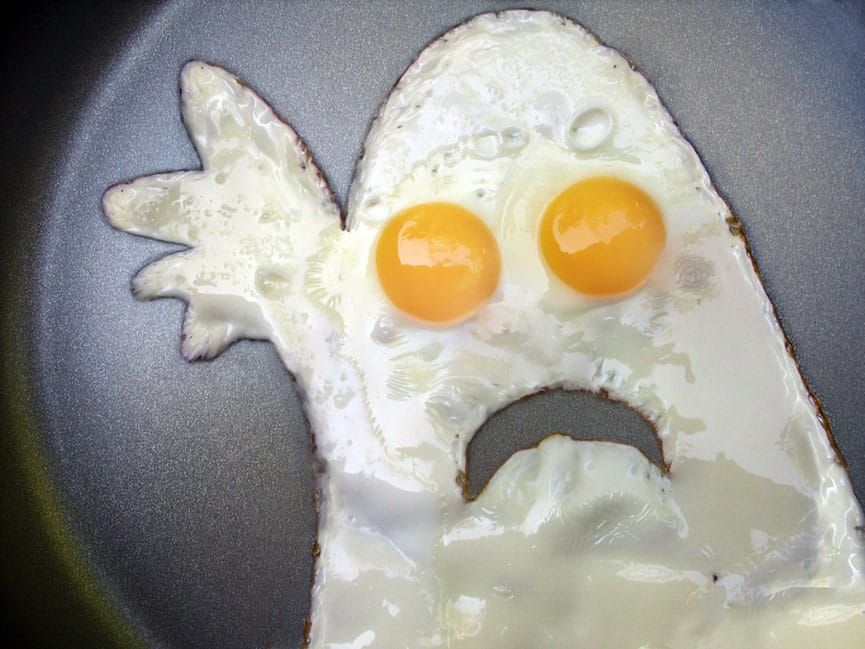 Dragan Todorovic/Getty Images
Dragan Todorovic/Getty Images My grandson Finn is many things. At nine, he is a video gamer, scientific fact finder, chess player, and a dabbler in amateur archaeology. The little mensch plays soccer, follows politics and has a knack for solving mysteries. As for telling a joke, when Finn pipes up with a zinger he brings down the house. Plus, he loves to cuddle and hates to sleep alone. In other words, he is my perfect house guest.
He also is our family’s picky eater. On my visits it seems like he eats about five things: pizza, chicken nuggets, hamburgers (no cheese, no lettuce, no ketchup, no French fries), pancakes and ice cream. Needless to say, his foods may not touch. And he can be a real crank in restaurants, where they do things like garnish.
As a long-distance grandparent, I’ve learned not to give advice. Anyway, I believe that the best approach to eating problems is to chill out. Eventually most of us eat our vegetables— just consider the popularity of Brussels sprouts and kale. In fact, many items that seemed hideous when we were children become delicacies, like caviar, later in life when our tired taste buds are searching for thrills.
When my children were young, and I was writing cookbooks, we didn’t have a picky eater in the house. We all ate a wide variety of foods—the results of whatever recipes I was working on at the time. Sadly, my husband is now a picky eater. But that’s another story having to do with cholesterol and animal rights.
Of course, some foods, like vegetables, were not exactly beloved even by my kids. I still remember my son’s face when his pediatrician asked him which vegetables he liked. After a moment of silent terror, he said, “lettuce.” An answer we both knew was a lie.
The memory of my own childhood revulsion to raw tomatoes is still vivid. I refused to eat them, eliminating salads, not to mention that hideous slice of red slime inserted in sandwiches. By the time I was in high school this peculiarity was odd enough that I wanted to get over it. So my best friend and I decided to set up a challenge, the original aversion therapy.
Since she had an equally strong dislike of butter—a thing I was then blithely eating by the stick—we made it an equal exchange. With a tomato in her hand, and a stick of butter in mine, we agreed that at the count of three, we would each simultaneously take a bite of the hated food. I still gag remembering my first bite of that squishy red blob. Even worse, my bestie played me. Screaming in horror, she didn’t take one lick of the butter!
I took Finn’s egg embargo as a challenge. After a 30-year career encouraging people to eat, I couldn’t believe that he refused to taste the most benign, comforting food on the planet—a pantry staple that parents count on for quick nutritious meals the night before going to the supermarket; an ingredient so alluring that the French have written treatises on it.
Before hatching a plan, I checked with his parents about Finn’s shaky claim that he was allergic—something I suspected couldn’t be true based on his consumption of piles of pancakes. When they agreed that it would be handy if he joined the world and ate an egg, I moved forward. Together, Finn and I negotiated a deal where if he ate an egg he could toss as many chocolate chips as he desired into tomorrow morning’s pancake batter.
My recipe was to keep it simple. One scrambled egg, cooked in butter and seasoned with a touch of salt. Starting with a small hot pan, I melted a healthy dollop of butter, reduced the heat and poured in the beaten egg. Then I slowly folded and stirred until just right—not too wet, not too dry. I turned it onto a small plate, sprinkled with salt and served hot with buttered toast. Then I took a seat at the table to keep him company. Naturally he proceeded with caution—after all, he had survived nine years without touching an egg. As I held my breath, he bravely took very tiny bites until it was all gone.
A year later, I can’t help but wonder: Did he ever eat another egg? My hunch is probably not. Chances are that he got swept up in the moment and then played along just to please me. It was clear that though he forced himself to finish that day, Finn was not savoring that chilly yellow blob on his plate.
In retrospect, it seems absurd that I cared so much. Apparently he is not alone in his strong feelings toward eggs. According to an article in The Guardian, about 25% of people don’t eat them. MedicineNet explains that, “Some people have highly reactive senses. They may experience nausea or gagging from the smell, texture, or taste of an egg. This may not be related to any allergy, intolerance, or other health condition. They may just not like eggs.”
Simply put, grandmas should not take an egg aversion personally.
Los Angeles food writer Helene Siegel is the author of 40 cookbooks, including the “Totally Cookbook” series and “Pure Chocolate.” She runs the Pastry Session blog.























 More news and opinions than at a Shabbat dinner, right in your inbox.
More news and opinions than at a Shabbat dinner, right in your inbox.